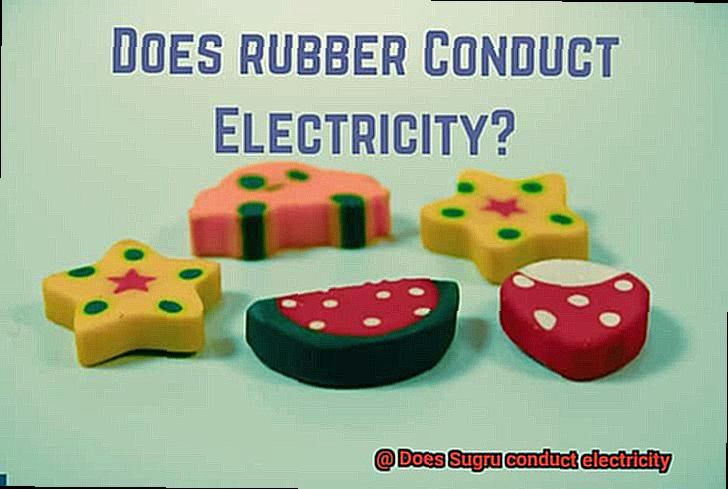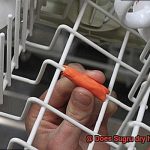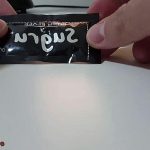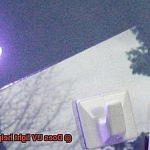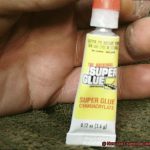Welcome to our latest blog post where we dive into the fascinating world of Sugru, the moldable glue that’s taking the DIY scene by storm.
You’ve probably heard about its incredible versatility in fixing, customizing, and creating all sorts of things. But here’s the million-dollar question: can Sugru conduct electricity?
So, buckle up as we unravel the mysteries of Sugru’s conductivity and unlock its potential as a conductive material.
What is Sugru?
Contents
Imagine having a glue that can fix all your broken items and add a personal touch to your belongings. Look no further, because Sugru is here to save the day. Developed by inventor Jane ni Dhulchaointigh, Sugru is a moldable glue that has taken the DIY world by storm.
So, what exactly is Sugru? It’s a unique material that starts off as a soft and pliable substance, similar to playdough. But don’t let its initial form fool you – once it cures, it transforms into a durable rubber-like material that can withstand the test of time. This makes Sugru perfect for repairing broken household items such as kitchen appliances, electronics, furniture, and toys.
The versatility of Sugru is one of its greatest strengths. It can bond to a wide variety of materials including metals, ceramics, glass, plastics, and fabrics. So whether you need to fix a cracked mug or mend a ripped fabric, Sugru has got you covered. And the best part? It’s waterproof, heat-resistant, and flexible once it cures, making it suitable for both indoor and outdoor use.
Using Sugru is incredibly easy. Just remove a small amount from the package, knead it in your hands to activate it, and apply it to the desired surface. You can mold it into any shape or form before it starts to cure, giving you plenty of time to work on your project. Once applied, Sugru takes about 24 hours to fully cure and become permanent.
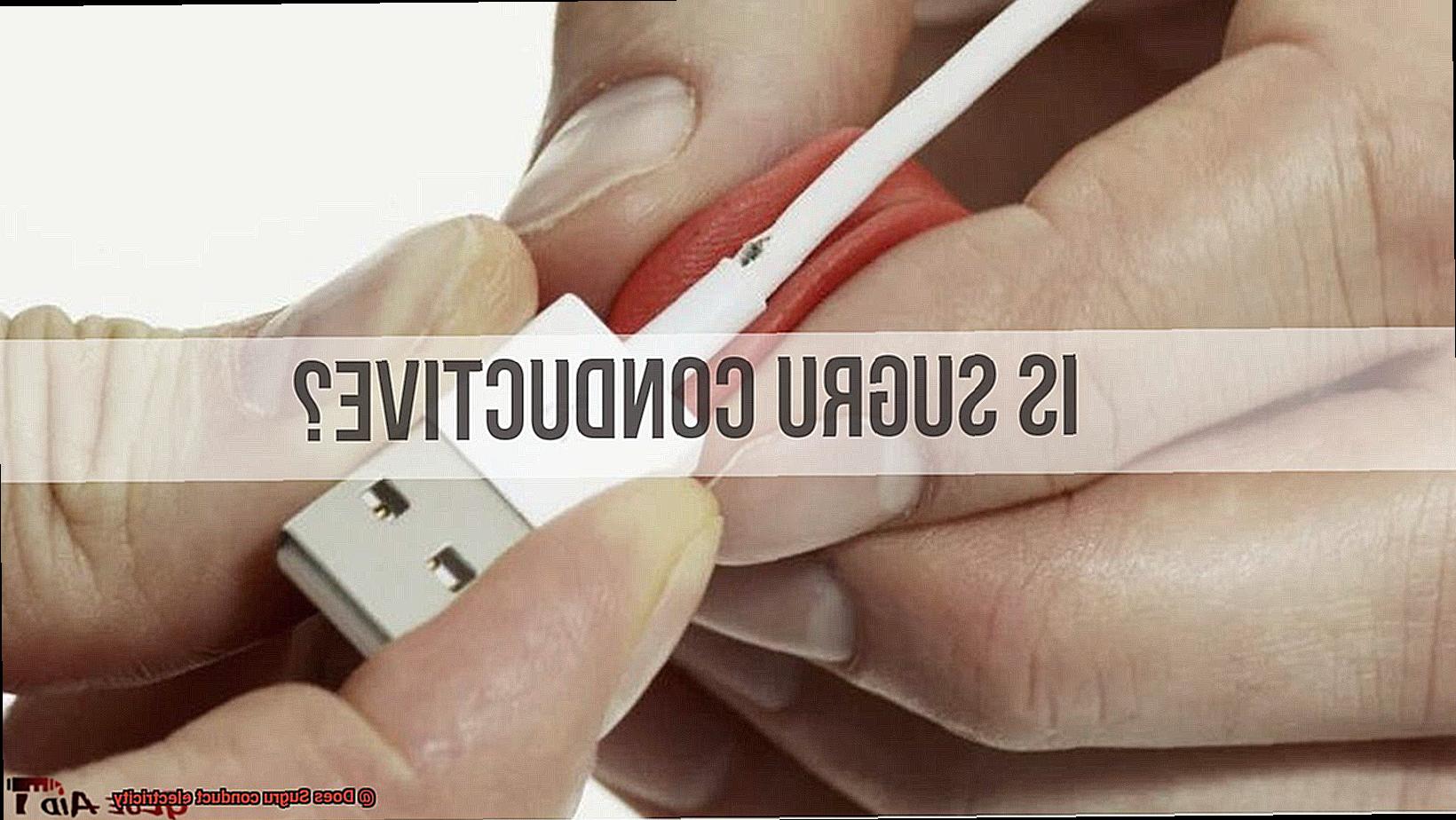
But Sugru isn’t just practical; it’s also eco-friendly. It’s non-toxic and contains no solvents or VOCs (volatile organic compounds). Plus, its durability and long-lasting nature reduce the need for constant replacements, making it an environmentally friendly choice.
Now let’s address a common question: does Sugru conduct electricity? The answer is no, Sugru does not conduct electricity like metals do. However, it can still be used in electrical applications. If you need to protect sensitive electronic circuits from moisture or physical damage, Sugru can act as an insulator or protective coating. Just be aware that if Sugru is in direct contact with electrical components, it may slightly interfere with the flow of electricity.
Does Sugru Conduct Electricity?
Sugru, the incredible moldable glue that has captured the hearts of DIY enthusiasts, is renowned for its versatility in fixing things. But what about its electrical properties? Can it conduct electricity? Let’s embark on a journey into the world of research to discover the truth.
At its core, Sugru is primarily composed of silicone rubber, which is known for its insulating characteristics. Insulators, as their name suggests, impede the flow of electric current, making them ideal for safeguarding electrical components.
But here’s where things get intriguing. Sugru contains an ingredient called carbon black, often used as a filler in rubber materials. Carbon black can augment mechanical strength and provide some degree of electrical conductivity.
However, the quantity of carbon black present in Sugru may not be sufficient to confer high conductivity. It is more plausible that Sugru possesses a certain level of electrical resistance rather than outright conductivity. In other words, while it doesn’t entirely obstruct the flow of electric current, it doesn’t actively facilitate it either.
To truly comprehend the electrical properties of Sugru, experiments can be conducted to measure its resistance. Resistance represents the opposition to the flow of electric current and can be quantified using specialized equipment.
But let’s not delve too deeply into technicalities. Based on user experiences and anecdotal evidence, Sugru is commonly reported to exhibit insulating properties when employed in electrical applications. People have successfully insulated wires, repaired cables, and created protective barriers around electronic components using Sugru.
However, it is crucial to note that while Sugru may possess insulating properties, it should never substitute professional electrical insulation materials in high-voltage or critical applications. Safety must always be prioritized when working with electricity.
In conclusion, Sugru’s primary composition of silicone rubber categorizes it as an insulator. While it might possess some level of electrical resistance due to the presence of carbon black, it is generally considered an insulating material in electrical applications. Further research and experiments may be necessary to ascertain its precise electrical properties and limitations.
Properties of Sugru
Beyond its ability to fix and transform objects, Sugru boasts unique electrical properties that make it a reliable choice for electrical applications.
In this article, we will dive into the world of Sugru’s electrical conductivity, exploring its insulating nature and how it can be harnessed for inventive DIY projects.
Insulating Superpowers:
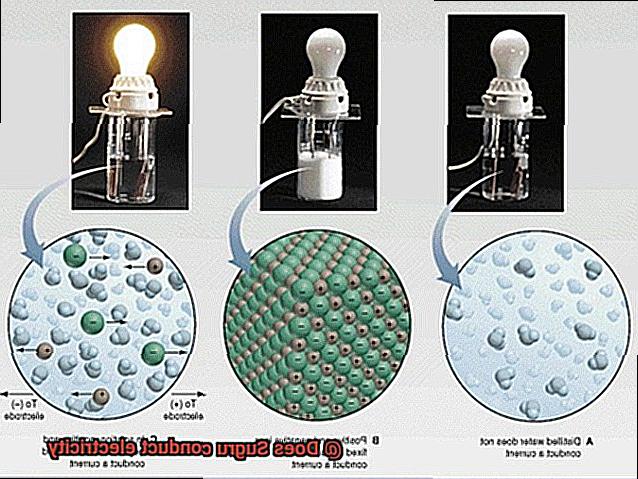
At its core, Sugru is made up of silicone rubber, rendering it an excellent insulating material. This means that it resists the flow of electricity, making it ideal for repairing and safeguarding electrical cables, wires, and other electronic components.
With Sugru, you can insulate exposed wires or create protective barriers around delicate electronic parts without fear of short circuits or electrical shocks.
A Hint of Conductivity:
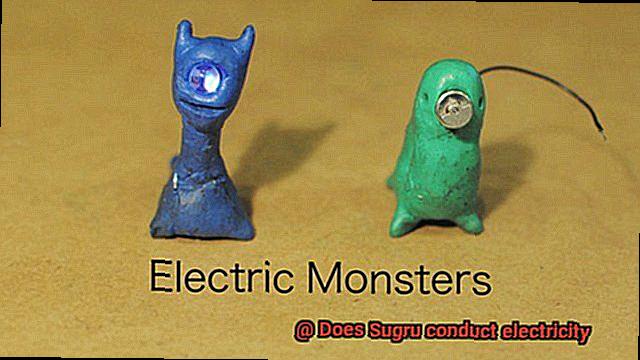
Although primarily an insulator, Sugru can exhibit slight conductivity under certain conditions. When in contact with conductive materials like metals or water, Sugru may facilitate a limited flow of electricity.
However, it is important to note that Sugru is not a reliable conductor like copper or aluminum. Instead, think of it as a weak conductor or resistor.
Applications:
The non-conductive nature of Sugru offers distinct advantages in various DIY applications. For instance, you can fashion custom grips or handles for tools and devices using Sugru. These grips not only provide comfort but also act as insulators, reducing the risk of accidental electrical shocks.
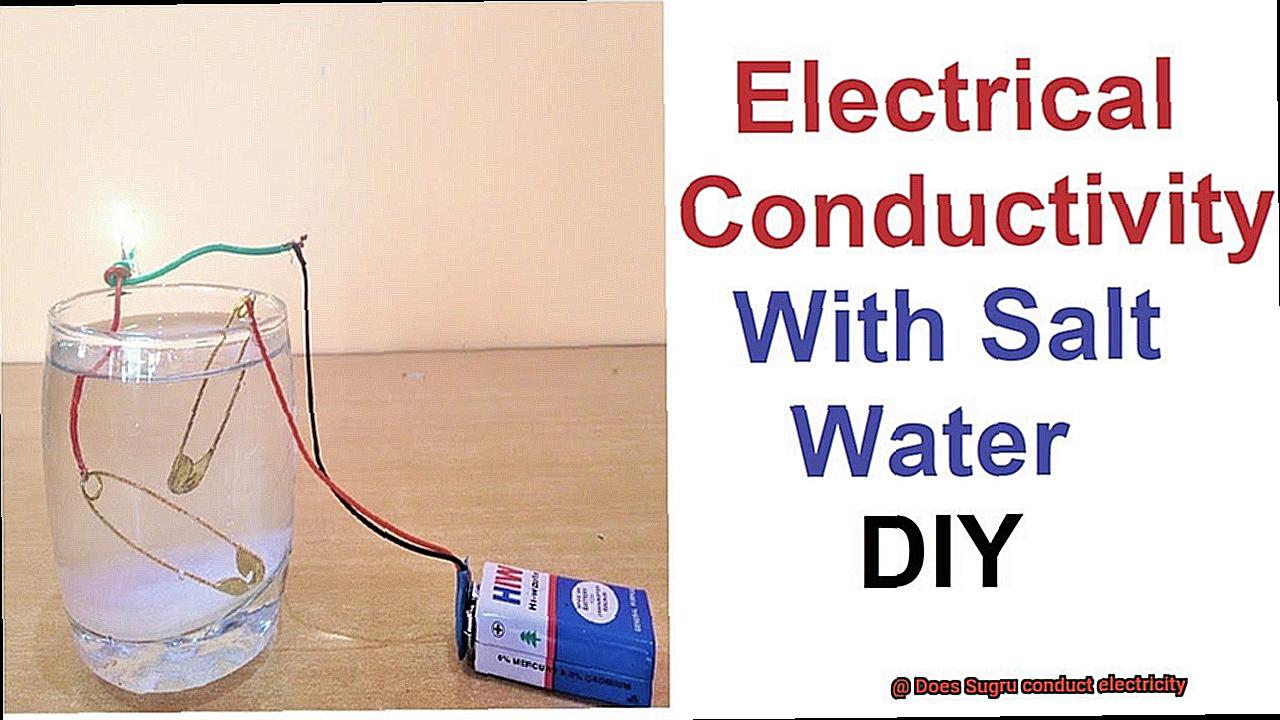
Moreover, Sugru’s insulating properties make it perfect for repairing damaged cables or reinforcing weak spots in electrical connections. It can also be used to create strain reliefs around cable joints, preventing excessive bending that could potentially cause damage.
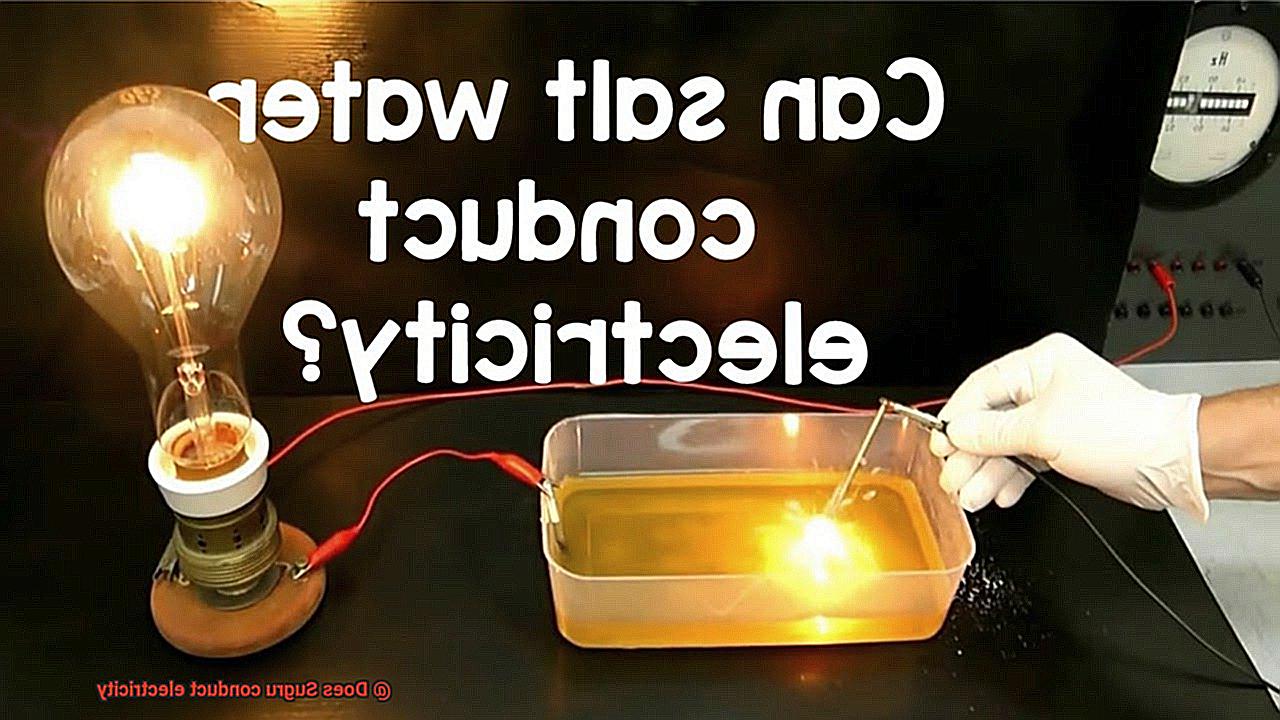
How Does Sugru Interact with Electric Currents?
Get ready to be electrified by the fascinating world of Sugru and its interaction with electric currents. This versatile, moldable glue is a superhero among adhesives, capable of bonding to almost anything and transforming into a durable rubber-like substance. But did you know that under certain conditions, Sugru can become conductive?
Sugru owes its conductivity to a special ingredient called carbon black. This conductive filler allows Sugru to form a continuous path between two electrical components, enabling the flow of electric current. Imagine the possibilities.
However, before you start zapping everything in sight, there are a few things to consider. While Sugru can conduct electricity, its conductivity is relatively low compared to metals and other conductive materials. It may not be ideal for high-power applications or situations that require precise and reliable electrical connections.
Factors such as temperature, humidity, and the thickness of the Sugru layer can also affect its conductivity. So, keep these in mind when incorporating Sugru into your electrical projects.
Sugru isn’t just a conductor; it’s an insulation expert too. Picture this: you’re working on an electrical project and want to protect your wires or components from accidental contact with other conductive materials. Enter Sugru, the superhero glue that can provide a protective layer around your precious electrical components.
Of course, specialized products designed specifically for conducting electricity or insulating electrical connections may offer better conductivity or insulation properties than Sugru. Nevertheless, if you’re seeking a versatile material that can bond and potentially conduct electricity in certain situations, Sugru is your go-to glue.
So, there you have it – the electrifying truth about how Sugru interacts with electric currents. While it may not be the flashiest conductor out there, it certainly packs a punch when it comes to bonding and providing a protective layer. Let Sugru be your trusty sidekick in your next DIY adventure.
Adhesion Properties of Sugru
With its extraordinary adhesion properties, Sugru reigns supreme as the go-to glue for all your repair and modification needs.

Sugru possesses the uncanny capability to adhere to a vast array of materials. Plastics, metals, glass, ceramics, wood, fabrics – you name it, Sugru can forge an unyielding and long-lasting bond. But heed this advice: before applying Sugru, ensure the surfaces are thoroughly cleaned and dried for optimal results. And if you desire an even mightier grip, a gentle roughening of the surface will elevate the bonding strength to new heights.
What sets Sugru apart from its adhesive counterparts is its self-adhesive nature. Yes, you read that correctly – Sugru can stick to itself. This means you can seamlessly unite multiple pieces of Sugru, creating a fortification that knows no bounds. Whether you’re salvaging a shattered item or customizing an object to suit your needs, Sugru has got your back.
But what about electrical applications, you ask? While Sugru is not innately conductive, fear not – there exists a means to awaken its electrifying potential. By integrating conductive materials like graphite powder or conductive paints, Sugru can be transformed into a conductor extraordinaire. This opens up a tantalizing realm of possibilities for electronic repairs or the construction of bespoke circuits.
However, let it be known that working with conductive Sugru necessitates adherence to specific guidelines and precautions. For instance, tread cautiously around sensitive electronics and ensure proper grounding during the application process. Safety and functionality should always reign supreme.
Conductivity of Materials
We’re about to embark on an electrifying journey into the world of Sugru and its conductivity. Get ready to be dazzled.
Composition and Formulation:
Sugru, primarily composed of silicone rubber renowned for its insulating properties, may initially seem unlikely to conduct electricity. However, don’t be fooled by appearances. Sugru’s secret lies in the presence of conductive fillers that can boost its electrical conductivity. These fillers form a conductive path within the silicone rubber matrix, allowing electric current to flow.
Experiments and Findings:
Enterprising researchers and enthusiasts have conducted numerous experiments to unveil Sugru’s conductivity. One popular method involves using Sugru as a medium for current flow in a simple circuit. By measuring resistance or current passing through a sample of Sugru, they have unveiled its fascinating electrical capabilities.
Factors Affecting Conductivity:
The conductivity of Sugru is influenced by various factors such as temperature and pressure. As temperatures rise, charge carriers within the material gain increased mobility, potentially leading to heightened conductivity. Applying pressure can also alter the internal structure and arrangement of conductive fillers, thereby impacting Sugru’s conductivity.
Applications:
While Sugru may not rival metals or other highly conductive materials in terms of electrical conduction, it still finds practical applications. For instance, it can be employed in creating simple circuits or repairing electronic devices where a modest amount of electrical conduction suffices. With the addition of graphite powder or conductive paints, Sugru morphs into a versatile conductor suitable for electronic repairs and custom circuitry.
Safety and Caution:

Working with conductive Sugru demands caution to ensure safety and functionality. Adhere to guidelines and best practices to avoid any mishaps.
Conclusion:
Voila. Sugru, the moldable glue of endless possibilities, possesses a surprising degree of electrical conductivity. While it may not steal the limelight from metals, its unique properties make it perfect for specific applications. So, why wait? Unleash your creativity and explore the electrifying potential of Sugru.
Metals as Excellent Conductors
In this article, we will delve into the electrifying secrets behind why metals reign supreme as conductors. Buckle up and prepare for an enlightening journey into the inner workings of metals as exceptional conductors.
The Atomic Structure:
To truly comprehend why metals are unparalleled conductors of electricity, we must first explore their atomic structure. Metals consist of closely packed atoms, forming a lattice-like structure. Within this structure, there are outer electrons that are only weakly bound to their respective atoms. These “free” electrons are the vital players in conducting electricity.
The Dance of Free Electrons:
When a voltage courses through a metal, these free electrons respond with an elegant drift in the direction of the electric field. Their graceful movement generates an electric current, flowing effortlessly through the metal. Unlike non-metallic materials, metals possess a high density of available free electrons, enabling efficient flow and minimizing resistance.
The Conduction Band:
One of the most intriguing aspects of metals is the existence of a continuous band of electron states known as the conduction band. This band emerges from the overlapping energy levels of neighboring metal atoms, creating a mesmerizing pathway for electrons to traverse. The conduction band serves as a high-speed highway for electrons, further enhancing the conductivity of metals.
Comparing Metals with Non-Metallic Materials:
While metals shine brightly as exceptional conductors, non-metallic materials like plastics or ceramics pale in comparison. These materials harbor fewer available free electrons and lack a conduction band, resulting in feeble electrical conductivity. This inherent disparity sets metals apart as superior conductors, captivating scientists and engineers alike.
Sugru’s Conductivity:
Now, let us shift our focus to Sugru, the versatile moldable glue that has captured our attention. Composed primarily of silicone rubber, Sugru does not possess the necessary atomic structure or abundance of free electrons found in metals.
However, certain variations of Sugru may incorporate conductive additives such as graphite or carbon nanotubes. These additives can elevate Sugru’s electrical conductivity to some extent, although it remains significantly lower than that of metals. While Sugru may exhibit limited conductivity with these additives, it cannot rival the extraordinary capabilities of metals as conductors.
Sugru as an Insulator or Protective Coating
This unique moldable glue is not only fun to work with but also has some surprising electrical properties that make it a great choice for various applications.
Sugru’s silicone-based composition gives it a high resistance to electricity, making it an effective insulator. While not a traditional insulating material like rubber or plastic, Sugru’s ability to resist electrical currents makes it ideal for covering exposed wires or electrical connections. By providing a layer of protection against shocks or accidental contact, Sugru ensures safety in electrical systems.
But Sugru doesn’t stop at being an insulator. When applied as a coating, it creates a thin barrier between the electrical component and its surroundings, acting as a protective layer. This barrier prevents electrical shorts and reduces the risk of damage to the electrical system. Moreover, Sugru’s insulating properties make it perfect for protecting electronic devices from moisture or dust. By covering exposed parts or gaps in the device, Sugru creates a waterproof or dustproof seal, extending the lifespan of your electronics.
Not limited to wires and devices, Sugru can also be used as a protective coating for tools or equipment that may come into contact with electrical currents. For example, applying Sugru to the handles of pliers or screwdrivers provides insulation and improves grip, ensuring safer use and reducing the risk of accidents.
To ensure proper insulation, apply Sugru evenly and securely, covering all exposed areas. It is crucial to avoid any gaps or voids in the coating to maintain its effectiveness as an insulator or protective layer. Additionally, testing Sugru’s effectiveness before relying on it for critical applications is highly recommended. Use a multimeter to measure the resistance between two points before and after applying Sugru, ensuring that it meets your requirements.
ePevcMuBS0w” >
Conclusion
In conclusion, Sugru, the revolutionary moldable glue that has taken the DIY world by storm, does not possess the same conductivity as metals. However, this does not mean it is incapable of being used in electrical applications. Composed primarily of silicone rubber, Sugru boasts impressive insulating characteristics that impede the flow of electric current, making it an ideal choice for safeguarding delicate electrical components.
While Sugru does contain a component called carbon black that can offer a degree of electrical conductivity, it may not be enough to achieve high levels of conductivity. Instead, Sugru likely possesses a certain level of electrical resistance rather than outright conductivity.
Nevertheless, users have reported successful utilization of Sugru in various electrical applications such as wire insulation, cable repairs, and the creation of protective barriers around electronic components. Although it may slightly interfere with the flow of electricity when in direct contact with these components, Sugru still provides valuable insulation and protection.
It is crucial to note that while Sugru exhibits insulating properties, it should never serve as a substitute for professional electrical insulation materials in high-voltage or critical applications. Safety must always remain paramount when working with electricity.

